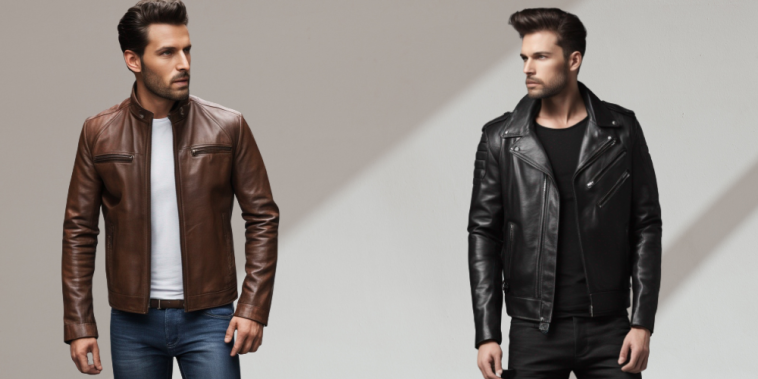Introduction
In the realm of fashion, the jacket has transcended its utilitarian origins to become a powerful symbol of self-expression, identity, and even rebellion. And nowhere is this more evident than in the American context, where the jacket has taken on an iconic status as a symbol of freedom and rebellion. In this blog post, we will explore the rich history and cultural significance of the American jacket, tracing its evolution from its military origins to its role in counterculture movements. So, fasten your seatbelts, as we embark on a journey through time and style, discovering how the American jacket has become a canvas for individuality and a statement of defiance.
The Military Roots:
Our story begins with the military, where the jacket’s history is deeply rooted. The American jacket’s evolution can be traced back to the Revolutionary War when soldiers wore coats made of thick wool to withstand harsh weather conditions. These early jackets, often adorned with brass buttons and tailored for practicality, laid the foundation for what would become a symbol of American resilience and independence.
The Leather Rebel:
One of the most iconic incarnations of the American jacket is the leather biker jacket. Popularized in the mid-20th century, this jacket has been embraced by rebels and free spirits alike. Its rugged appearance and association with motorcycle culture have made it a symbol of defiance against societal norms.
The Counterculture Revolution:
The 1960s saw a cultural revolution in America, and the jacket played a significant role in this transformation. The denim jacket, in particular, became a canvas for expression among the counterculture movement. Its blank slate invited customization through patches, pins, and paint, allowing individuals to make bold statements about peace, love, and freedom.
Hollywood Icons:
The American jacket’s symbolism was further solidified through Hollywood. Think of Marlon Brando’s iconic portrayal of a rebellious biker in “The Wild One” or James Dean’s rebellious spirit in “Rebel Without a Cause.” These silver screen rebels donned jackets that transcended mere clothing; they became symbols of nonconformity and individuality.
The Utility of Utility Jackets:
While some jackets became symbols of rebellion, others found their place in practicality. The M-65 field jacket, for instance, emerged during the Vietnam War. Its versatility and durability made it a popular choice among both soldiers and civilians. This utilitarian jacket eventually found its way into mainstream fashion, illustrating the jacket’s ability to adapt to changing times while retaining its symbolism.
The Music Connection:
Music has always been a driving force behind cultural change, and the American jacket has frequently been part of this evolution. Think of the punk rock movement with its leather jackets adorned with spikes and studs or the grunge era’s flannel-lined denim jackets. Musicians often use their attire to make a statement, and the jacket is a prominent tool in their arsenal.
The Rise of Streetwear:
In recent years, the American jacket has found a new home in streetwear fashion. Brands like Supreme and Off-White have elevated the jacket to new heights of coolness. The jacket has become a staple of urban culture, symbolizing the fusion of style and streetwise attitude.
The Iconic Jean Jacket:
Among the myriad styles of American jackets, the jean jacket deserves a special mention. Denim, often dubbed as “America’s fabric,” has been an essential part of American culture for decades. The jean jacket’s rugged, enduring appeal is not only a testament to its functionality but also to its symbolism.
The jean jacket, commonly known as the “denim jacket,” first made its appearance in the late 19th century. Originally designed for workers and cowboys, it was made from durable denim fabric, making it well-suited for the demands of rugged labor. Over time, it evolved from a workwear staple to a fashion statement.
In the 1950s, the jean jacket gained widespread popularity thanks to Hollywood heartthrobs like James Dean and Marlon Brando, who wore them both on and off the screen. Their effortless coolness and rugged charm were embodied by the jean jacket, further cementing its status as a symbol of rebellion.
The Evolution of Personalization:
One of the most fascinating aspects of the American jacket’s journey is the art of personalization. From the peace-loving hippies of the 1960s who adorned their jean jackets with colorful patches and embroidered flowers to the punk rockers of the 1970s and 80s who added spikes and graffiti-inspired designs, customization has always been an integral part of the American jacket’s allure.
This DIY approach allowed wearers to transform their jackets into wearable canvases, reflecting their individuality and often making profound statements about social and political issues. It was a way to communicate one’s identity and beliefs to the world.
The Influence of Subcultures:
Conclusion:
In conclusion, the American jacket has a storied history filled with rebellion, individuality, and freedom. From its humble beginnings as a practical military garment to its current status as a fashion statement, it has consistently adapted to reflect the zeitgeist of its time. Whether it’s the leather biker jacket worn by rebels, the denim jacket customized with patches, or the utilitarian field jacket, each incarnation tells a unique story of American culture and its relentless pursuit of freedom and self-expression.
As we continue to push the boundaries of fashion and style, it’s safe to say that the American jacket will remain a symbol of freedom and rebellion, standing as a testament to the enduring spirit of individuality in the land of the free. So, the next time you slip into your favorite jacket, remember that you’re not just wearing clothing; you’re wearing a piece of American history and a symbol of the unyielding human spirit.




